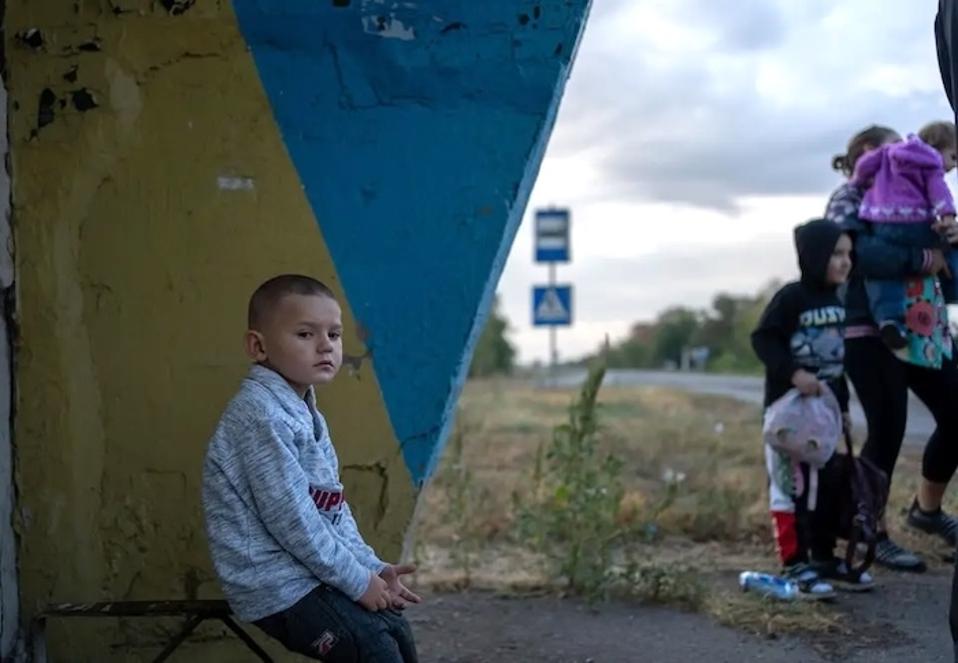Displaced and vulnerable families across Ukraine are preparing to cope with yet another bitterly cold winter, with the help of UNICEF and partners.
Children in Ukraine desperately need safety, warmth, water and light for living and learning
As the Ukraine war stretches into its fourth winter, childhood remains under attack, with civilian infrastructure severely strained and household coping capacities stretched to the limit. Daily strikes are crippling power, heating and water supplies; families are forced to sleep in shelters as temperatures plummet.
On Nov. 19, 2025, the latest in a series of deadly attacks across Ukraine killed three children and injured 19 children in Ternopil, Ivano-Frankivsk and Kharkiv. The attacks hit civilian areas far from the front line, a grim reminder that no child, no home, is safe in Ukraine. According to the UN, since the full-scale invasion by the Russian Federation, more than 3,100 children have been killed or injured in Ukraine.
UNICEF is working to help keep the essentials of life running in Ukraine — repairing district heating and installing new boilers to help keep clinics open and homes habitable, supporting school heating so children can continue learning and fixing water networks to keep water flowing. UNICEF is also providing humanitarian cash assistance to help families on the front line meet their most urgent needs.
Related: Help UNICEF Deliver Warmth and Safety This Winter
Watch the video:
Humanitarian cash assistance gives families dignity and flexibility to meet their most urgent needs
UNICEF’s 2025-26 winter response plan builds on lessons learned from previous years, including feedback from families that revealed how cash assistance significantly improved their living conditions; 94 percent stating of those surveyed said that cash is their preferred form of winter support. Nearly all households reported spending on specific winter needs, such as utilities, heating and electricity, winter clothes and shoes.
As a result, UNICEF Ukraine’s 2025-26 winter response plan focuses on the efficacy of cash transfers to households and schools, as well as the sustainable impact of district heating repairs and upgrades, including three core areas:
- Cash for winterization assistance targeting 272,000 people, including around 122,000 children from vulnerable households in frontline areas and children with specific needs such as child protection concerns
- Cash grants for 600 education facilities, covering some 250,000 students, to support winter-related costs
- Equipment and emergency repairs to strengthen district heating systems and ensure sustainable heating for 1 million people, including 170,000 children
“Children and families already facing extreme daily stress are now forced to endure yet another winter during wartime,” said Munir Mammadzade, UNICEF Representative to Ukraine. “We’re working with local partners to provide support to vulnerable families and to minimize the impact of the winter months by keeping essential services running to protect children’s lives.”
Whenever and wherever children need humanitarian support, UNICEF is there to help
UNICEF’s work aligns with and contributes to the United Nations and humanitarian partners 2025-2026 Winter Response Plan that aims to deliver multisectoral assistance to over 1.7 million people, with a focus on the most vulnerable families in frontline regions. The winter response has been active over the past few months to ensure supplies and equipment are in place well ahead of the sub-zero temperatures.
UNICEF is grateful to partners, including the European Union, Germany, Norway and UNICEF National Committees. As of mid-September, the plan was only 37 percent funded, and an additional $41 million was urgently needed to assist some of the most vulnerable children and households to survive the freezing winter months.
Nearly 2 million children in Ukraine are in need humanitarian assistance, and millions more require sustained support to resume some semblance of childhood. “We say it again: Children must be protected,” Mammadzade added. “Above all, children need an unconditional and lasting peace.”

